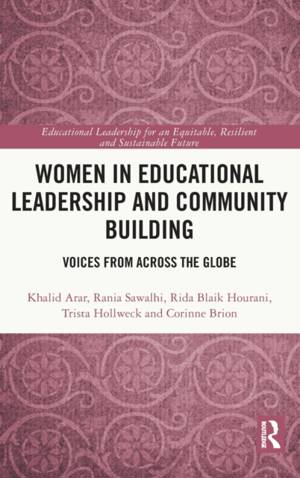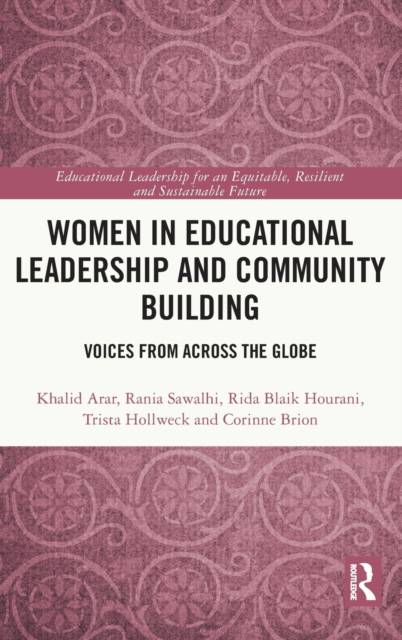
- Retrait gratuit dans votre magasin Club
- 7.000.000 titres dans notre catalogue
- Payer en toute sécurité
- Toujours un magasin près de chez vous
- Retrait gratuit dans votre magasin Club
- 7.000.0000 titres dans notre catalogue
- Payer en toute sécurité
- Toujours un magasin près de chez vous
Women in Educational Leadership and Community Building
Voices from Across the Globe
Khalid Arar, Rania Sawalhi, Rida Blaik Hourani, Trista Hollweck, Corinne BrionDescription
This book foregrounds the voices of women in educational leadership to draw on the power of diverse perspectives and to create an environment that better embraces a broad range of leadership styles.
Chapters explore formal and informal women's educational leadership practices and examine the methods and approaches used by successful women leaders across West Africa, the Middle East, Europe, and Australia. The book examines how best to humanize educational leadership in a way that invests in the unique skills and talents that women leaders possess, and it identifies a leadership model that is situated within a range of intersecting theoretical frameworks that revolve around collective leadership, transformation theories, and community partnerships. In doing so, the book elevates education into the sphere of comprehensiveness, inclusion, equity, sustainability, and social justice.
By sharing the lived experience of women leaders using a multi-perspective narrative approach, the book develops and hones exemplary educational leadership and community-engaged practices for the good of all. This volume will be key reading for scholars, doctoral students, and researchers engaged in fields such as education policy, women's studies, and international and comparative education, among others.
Spécifications
Parties prenantes
- Auteur(s) :
- Editeur:
Contenu
- Nombre de pages :
- 136
- Langue:
- Anglais
- Collection :
Caractéristiques
- EAN:
- 9781032418537
- Date de parution :
- 27-02-23
- Format:
- Livre relié
- Format numérique:
- Genaaid
- Dimensions :
- 156 mm x 234 mm
- Poids :
- 399 g

Les avis
Nous publions uniquement les avis qui respectent les conditions requises. Consultez nos conditions pour les avis.






